High-Level Policy Session 4: Inclusiveness – access to information and knowledge for all / Bridging Digital Divides
WSIS
Session 143
Bridging Digital Divides
According to the latest ITU data, roughly one-third of the global population (2.7 billion people) remain unconnected to the Internet. The figure was an improvement from 2021 but revealed a levelling off from the strong connectivity gains made during the onset and height of the COVID-19 pandemic.
The Internet has become more affordable in all regions of the world and among all income groups. Cost, however, remains a major obstacle to Internet access, especially in low-income economies. The current global economic situation – with high inflation, rising interest rates, and deep uncertainty – could add to the challenge of extending Internet reach in lower-income areas.
Furthermore, the gender gap is still present, with 259 million fewer women having access to the internet than men. Although the world has moved closer to gender parity in the last three years, gender parity scores are low in underdeveloped and vulnerable economies.
We are fully aware that the benefits of the information technology revolution are today unevenly distributed between developed and developing countries and within societies. We are fully committed to turning this digital divide into a digital opportunity for all, particularly for those who risk being left behind and being further marginalized.
[1]//1f8a81b9b0707b63-19211.webchannel-proxy.scarabresearch.com/en/mediacentre/Pages/PR-2022-11-30-Facts-Figures-2022.aspx
[2]//1f8a81b9b0707b63-19211.webchannel-proxy.scarabresearch.com/net/wsis/docs/geneva/official/dop.html
First Phase of the WSIS (10-12 December 2003, Geneva) Geneva Declaration of Principles
Inclusiveness, Access to Information and Knowledge for All
The ability for all to access and contribute information, ideas and knowledge is essential in an inclusive Information Society.
The sharing and strengthening of global knowledge for development can be enhanced by removing barriers to equitable access to information for economic, social, political, health, cultural, educational, and scientific activities and by facilitating access to public domain information, including by universal design and the use of assistive technologies.
A rich public domain is an essential element for the growth of the Information Society, creating multiple benefits such as an educated public, new jobs, innovation, business opportunities, and the advancement of sciences. Information in the public domain should be easily accessible to support the Information Society, and protected from misappropriation. Public institutions such as libraries and archives, museums, cultural collections and other community-based access points should be strengthened so as to promote the preservation of documentary records and free and equitable access to information.
Geneva Declaration of Principles, //1f8a81b9b0707b63-19211.webchannel-proxy.scarabresearch.com/net/wsis/docs/geneva/official/dop.html
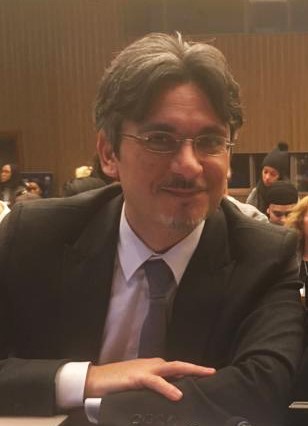

Dr Emilija Stojmenova Duh completed her undergraduate and postgraduate studies at the Faculty of Electrical Engineering, Computer Science and Informatics of the University of Maribor. In the past, she managed the 4PDIH Digital Innovation Hub – a partnership between the Faculty of Electrical Engineering and the Association of Municipalities of Slovenia that raises awareness of the importance of digitalization, provides support in the development of digital knowledge and skills, and helps decision makers design appropriate digitalization policies. Her work in research and development focused on the use of new digital technologies for innovation in and the development of cities, villages and communities, digital innovation hubs, rural development and digital transformation. Dr Stojmenova Duh was the first President of IEEE’s "Women in Engineering Slovenia". She was also the first Slovenian woman representative at the Global Young Academy and a member of the European Research Area Working Group within ALLEA – All European Academies. She is strongly committed to increasing the number of young people studying engineering – especially women. She is author and co-author of a number of scientific and professional publications concerning digital transformation.
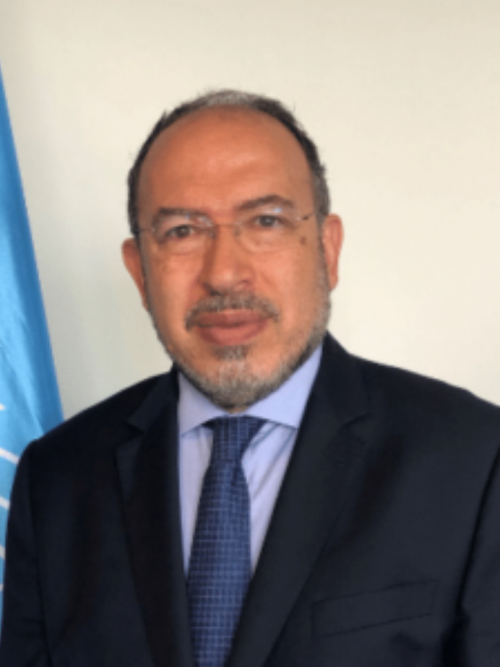

Paweł Lewandowski is a manager with experience in regulation, innovation and digital policy. He has graduated from Cardinal Stefan Wyszyński University in Warsaw, Warsaw School of Economics and the Polish Institute of International Affairs. In addition, he completed the Executive MBA programme offered by Stanford Research Institute International and Queen Hedvig Academy in Innovation Management.
From 2017 to 2020, Undersecretary of State at the Ministry of Culture and National Heritage, responsible for national and EU legislation, audiovisual policy, digitisation and creative industries.
His work focused on protecting freedom of speech; he amended the Press Law Act, which liberalised the obligation to authorise quoted statements by abolishing criminal provisions on this issue. In addition, he represented Poland in developing the Directive on Copyright in the Digital Single Market. He contributed, among other things, to the introduction of provisions guaranteeing the possibility for ordinary users to continue to share content on social networking sites. He also presented the Polish position on the Audiovisual Media Services Directive, which aimed to harmonise the law on making content available on online platforms and in traditional media.
He was a member of the Committee of the Council of Ministers for Digitalisation. He coordinated the Ministry’s and subordinate institutions’ activities in implementing tasks arising from Operational Programme Digital Poland (OPDP). At that time, the Ministry of Culture and National Heritage was implementing projects worth approximately PLN 320 million concerning, among others, the digitisation of cultural collections and the use of artificial intelligence for this process.
From 2021 to 2022, he was chief executive officer at KGHM Polska Miedź, responsible for strategic projects. Led KGHM to establish cooperation with NuScale, a global leader in the so-called small modular reactor (SMR) technology – the agreement is expected to result in the launch of the first reactor in Poland in 2029.
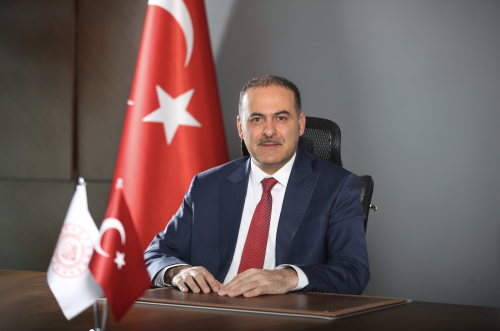
Ömer Fatih Sayan, PhD. was born in İstanbul in 1977. He received his Bachelor degree from the Electronics Engineering Department of İstanbul University Faculty of Engineering; Faculty of Law of Bahçeşehir University and Diplomatic Studies of Oxford University - St Antony’s School. He completed his Master’s Degree at Electrical and Electronics Engineering and Communications Engineering Department of Technical University of Munich and at Biomedical Engineering Department of İstanbul University Institute of Science and Technology. He also received his PhD on Biomedical Engineering at the İstanbul University Institute of Science and Technology.
Starting his career in İstanbul Metropolitan Municipality in 1995, Mr. Sayan worked in private companies in Turkey, Germany and USA in the fields of chip manufacturing, cell phone design and R&D after receiving his Bachelor’s Degree. He carried out studies in entrepreneurship by working under the initiative of Silicon Valley and he gave lectures on Information Law and New Trends in Informatics in many universities in Turkey and Germany. Ömer Fatih Sayan has given many lectures in conferences about research subjects and he has many articles published in scientific journals. He carried out his duty as Advisor to the Prime Minister and Chief Advisor to the Prime Minister between the years of 2007 and 2014.
He has worked as Information and Communications Technologies Authority (ICTA) Chairman from June 2015 to July 2018. He has been assigned as the Deputy Minister of the Ministry of Transport and Infrastructure on July 21, 2018.
He is married and father of three.
He speaks English, German and French.
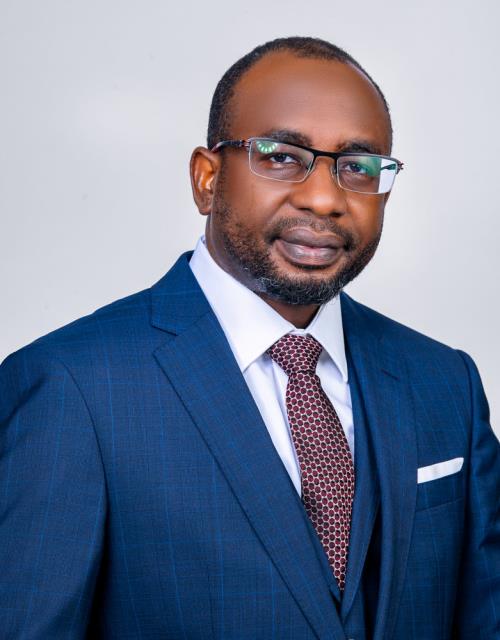
Kashifu Inuwa Abdullahi, Director-General/CEO of the National Information Technology Development Agency, NITDA, is a versatile Information Technology (IT) expert and transformational leader with experience that cuts across the private and public sectors. Mr Inuwa has bagged nearly two decades of corporate experience. He has applied himself and excelled in several positions with proven capacity, including managerial and leadership roles. His key competencies cuts across IT operations, growth management, business transformation, solution architecture, tech policy development and administration. As a thoroughbred IT expert, Mr Inuwa is the first Cisco Certified Internetwork Expert, CCIE in Nigeria's public sector. He graduated with a bachelor’s degree in Computer Science from Abubakar Tafawa Balewa University Bauchi. He received several executive certifications in leadership, innovation, networking, and solutions design from top-notch universities, including Harvard University, University of Cambridge, and Oxford University. He is also an alumnus of the prestigious IMD Business School, Switzerland, and the Massachusetts Institute of Technology (MIT) Sloan School of Management. He started his professional career at Galaxy Backbone Ltd in 2006 as a network engineer, and in 2014 he joined the Central Bank of Nigeria (CBN) as a Technology Architect. He then joined NITDA in 2017 as the Technical Assistant to the then Director-General. On 20th August 2019, in recognition of his astute and focused leadership, Mr Inuwa was appointed the Director-General of NITDA by the President of the Federal Republic of Nigeria, Muhammadu Buhari, GCFR. Thus far, he has placed NITDA on the global regulatory and digital economy map and has implemented various strategic initiatives making indelible impacts on all Nigerians.
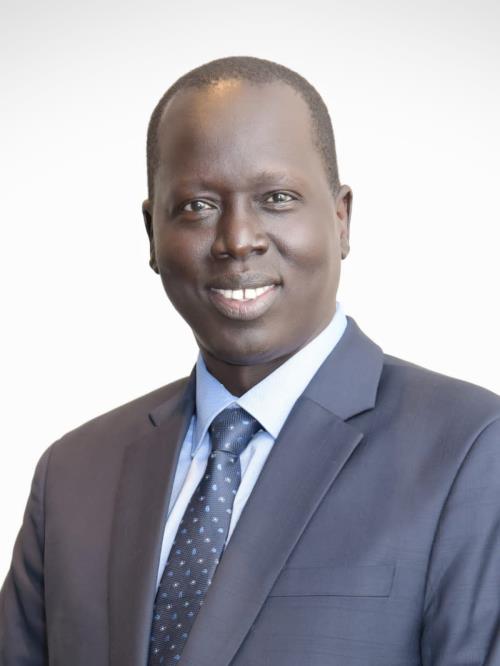
With more than 20 years of experience in ICT, I have gained invaluable knowledge in using technology to create opportunities and foster development in areas prone to conflict. I founded the first website in South Sudan (gurtong.net.) to promote peace and reconciliation. I achieved this through facilitating access to information through provision of well-researched information and enlightening our audiences on governance, health, economic development, and education; and to bridge culture divide by celebrating the values of our cultural diversity by making available information on the different ethnic communities in South Sudan.
Currently, I worked for South Sudan National Communication Authority as Director General I regulate telecommunications to enable socio-economic development for the benefit of South Sudanese. Promote capacity building, awareness, and confidence building in the communication sector in South Sudan.
I have worked for several institutions such as humanitarian and civil society organizations as a child’s rights advocate and promoted the demobilization of child soldiers in the SPLA (Sudan People’s Liberation Army). I served as Director of ICT in the Office of South Sudan’s President where I established the presidential communication department. As CEO of South Sudan International Gateway, I helped launch our first-ever international gateway to ease call rates and boost internet services in South Sudan. My achievements include leading projects and the success of ICT rural connectivity to foster peace and development in South Sudan.

Gilbert Camacho Mora is a Council Member of the Superintendence of Telecommunications (SUTEL) in Costa Rica. He is a telecommunication’s engineer and master’s in business administration (MBA). He has been Chairman of Board of Directors in four times (2015, 2017, 2019, 2022).
Education:
· PAG (Executive Management Program at INCAE) 2016
· Master´s in Business Administration (MBA), emphasis in Financing. Universidad Interamericana de Costa Rica (Laureate Internacional University). 2007
· Electrical Engineer, emphasis in Telecommunications. Universidad de Costa Rica. 1988.
· Program on Utility Regulation and Strategy, World Bank-University of Florida, Gainesville, Florida, USA. June 2013.
· Global Symposium for Regulators 2014, International Telecommunications Union, Bahrain, June 2014.
· GSMA Ministerial Program for Telecommunications Regulators, Barcelona, Spain, March 2015.
· Various training courses on Quality Management System (Alcatel-Lucent University) 2008-2012
Other Job experiencies:
· Alcatel-Lucent Quality Manager for Central America and Caribbean, July 2018 to January 2012.
· Lucent Technologies Costa Rica, Commercial Manager. April 1994- July 2008
· Switching Procurement Unit Manager. Instituto Costarricense de Electricidad, ICE. July 1985 to April 1994.
Awards and Recognitions:
· 1997. 1998, 2000. Lucent’s Certificate of Achievement. Achievers Club Member
· 1997. Lucent Technologies Performance Award
· 2003. Lucent’s Certificate for contribution to Cellular System Expansion in Costa Rica
· 2004. Highest Customer Loyalty Index

Chairman of the Board and CEO of the Telecommunications Regulatory Agency (OSIPTEL), Peru. Mr. Muente has held numerous positions in the public and private sector. In the private sector as an independent consultant, Manager of Legal and Corporate Affairs of Peruana de Combustibles S.A. (PECSA), Manager of Legal and Corporate Affairs of British American Tobacco of Peru S.A., Vice President of Legal and Regulatory Affairs of BellSouth Peru S.A., Legal Manager of Tele2000 S.A, among other positions. In the public sector, he has served as Head of Legal Advice of the Private Investment Promotion Agency, Head of the National Office of Electronic Government and Information Technology, Vice President of the Board of the Transportation Regulatory Agency, among other positions.
Mr. Muente holds a Bachelor's Degree in Law from the Pontifical Catholic University of Peru and a Master of Laws from the Illinois Institute of Technology. He is professor of Administrative Law and Telecommunications Law at the Pontifical Catholic University of Peru, as well as professor in the Master of Business Administration of the Peruvian University of Applied Sciences. He has comprised several Specialized Bodies for the solution of controversies in the OSIPTEL. He has long experience in holding conferences and preparing academic articles in various areas related to Law and business management.
At international level, in 2019 Mr. Muente was appointed President of the Latin American Forum of Telecommunications Regulators (REGULATEL) and; in 2023, he assumed again the Presidency for the current period. He also has been panelist in several high level meetings such as the Global Symposium for Regulators – GSR (2018-2021), WSIS High-Level Policy Session 2: Bridging Digital Divides” (March 2021), Workshop on Digital Cooperation between EU and LATAM (Costa Rica 2019), among others. Other relevant contribution has been made through his participation in meetings held by the Organization for Economic Cooperation and Development (OECD), such as the Regulatory Policy Commission and the Network of Economic Regulators.

Through her dedicated 20 years of hard work in the information technology (IT) and e-government sectors, Al Hammadi was distinguished with a high level of knowledge of IT strategies, business models, local culture, latest technical trends, and change in the organizational structure.
Al Hammadi graduated from Qatar Leadership Centre (QLC) Program in 2015, and HEC-CTO Program in 2019. She has an MA in Executive Business Administration and a BA in Computer Science from the Arab Academy for Science, Technology and Maritime Transport, and she is currently studying for her PhD on the Impact of the Use of IT in Digital Government (Qatar as a Case).
During her career, she held various leadership positions in IT departments across different government agencies, including the Ministry of Labor and the Ministry of Commerce and Industry, and accomplished several strategic projects in the country.
Al Hammadi has also been an active board member of Qatar National Broadband Network (Qnbn), in addition to taking part in several high-profile committees, such as the e-Government Steering Committee. She is also a member of other internal ministry-level committees.
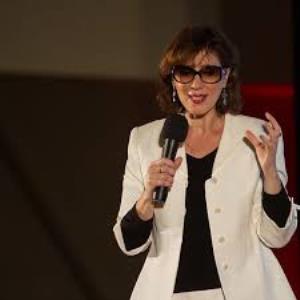
Tatyana Kanzaveli has gone from a programmer to senior executive at Big 5 to founder and CEO of a startup company along her 20 year career,recognized as a thought leader, mentor for her ability to guide Fortune 500 and startup companies through business challenges.
Today she is the founder and CEO of Open Health Network, the startup in a Big Data, Blockchain and Artificial Intelligence in Healthcare space. PatientSphere by Open Health Network has been featured in Venture Beat, Mobile Health News, and other prominent publications.
She is a mentor at 500Startups and Richard Branson Entrepreneurs Centre and serves on boards for private companies. She also is licensee and organizer of highly notable TEDxBayArea conferences, she is a frequent speaker at US and International conferences on innovation, entrepreneurship and digital health.

AHM Bazlur Rahman-S21BR has spent 30+years of his career playing as a leading role as the social catalyst for promoting community media, communicating on the public sphere, communicating knowledge, civil rights in communication & cultural rights in communication, ICT for development, knowledge society, internet governance, amateur radio, right to information and policy advocacy. media development, theological communication, innovative thought provoking practitioner, knowledge management for development (KM4D) and business for development.
He has unique quality of experience and contribution in an inclusive manner in multi-stakeholders of politics, development partners, private sector, NGO & civil society, public sector, policy makers, academia and media. He is known as transformational expert, visionary, and change agent.
-
 C1. The role of governments and all stakeholders in the promotion of ICTs for development
C1. The role of governments and all stakeholders in the promotion of ICTs for development
-
 C2. Information and communication infrastructure
C2. Information and communication infrastructure
-
 C3. Access to information and knowledge
C3. Access to information and knowledge
-
 C4. Capacity building
C4. Capacity building
-
 C5. Building confidence and security in use of ICTs
C5. Building confidence and security in use of ICTs
-
 C6. Enabling environment
C6. Enabling environment
-
 C7. ICT applications: benefits in all aspects of life — E-government
C7. ICT applications: benefits in all aspects of life — E-government
-
 C7. ICT applications: benefits in all aspects of life — E-business
C7. ICT applications: benefits in all aspects of life — E-business
-
 C7. ICT applications: benefits in all aspects of life — E-learning
C7. ICT applications: benefits in all aspects of life — E-learning
-
 C7. ICT applications: benefits in all aspects of life — E-health
C7. ICT applications: benefits in all aspects of life — E-health
-
 C7. ICT applications: benefits in all aspects of life — E-employment
C7. ICT applications: benefits in all aspects of life — E-employment
-
 C7. ICT applications: benefits in all aspects of life — E-environment
C7. ICT applications: benefits in all aspects of life — E-environment
-
 C7. ICT applications: benefits in all aspects of life — E-agriculture
C7. ICT applications: benefits in all aspects of life — E-agriculture
-
 C7. ICT applications: benefits in all aspects of life — E-science
C7. ICT applications: benefits in all aspects of life — E-science
-
 C8. Cultural diversity and identity, linguistic diversity and local content
C8. Cultural diversity and identity, linguistic diversity and local content
-
 C9. Media
C9. Media
-
 C10. Ethical dimensions of the Information Society
C10. Ethical dimensions of the Information Society
-
 C11. International and regional cooperation
C11. International and regional cooperation
-
 Goal 1: End poverty in all its forms everywhere
Goal 1: End poverty in all its forms everywhere
-
 Goal 2: End hunger, achieve food security and improved nutrition and promote sustainable agriculture
Goal 2: End hunger, achieve food security and improved nutrition and promote sustainable agriculture
-
 Goal 3: Ensure healthy lives and promote well-being for all
Goal 3: Ensure healthy lives and promote well-being for all
-
 Goal 4: Ensure inclusive and equitable quality education and promote lifelong learning opportunities for all
Goal 4: Ensure inclusive and equitable quality education and promote lifelong learning opportunities for all
-
 Goal 5: Achieve gender equality and empower all women and girls
Goal 5: Achieve gender equality and empower all women and girls
-
 Goal 6: Ensure access to water and sanitation for all
Goal 6: Ensure access to water and sanitation for all
-
 Goal 7: Ensure access to affordable, reliable, sustainable and modern energy for all
Goal 7: Ensure access to affordable, reliable, sustainable and modern energy for all
-
 Goal 8: Promote inclusive and sustainable economic growth, employment and decent work for all
Goal 8: Promote inclusive and sustainable economic growth, employment and decent work for all
-
 Goal 9: Build resilient infrastructure, promote sustainable industrialization and foster innovation
Goal 9: Build resilient infrastructure, promote sustainable industrialization and foster innovation
-
 Goal 10: Reduce inequality within and among countries
Goal 10: Reduce inequality within and among countries
-
 Goal 11: Make cities inclusive, safe, resilient and sustainable
Goal 11: Make cities inclusive, safe, resilient and sustainable
-
 Goal 12: Ensure sustainable consumption and production patterns
Goal 12: Ensure sustainable consumption and production patterns
-
 Goal 13: Take urgent action to combat climate change and its impacts
Goal 13: Take urgent action to combat climate change and its impacts
-
 Goal 14: Conserve and sustainably use the oceans, seas and marine resources
Goal 14: Conserve and sustainably use the oceans, seas and marine resources
-
 Goal 15: Sustainably manage forests, combat desertification, halt and reverse land degradation, halt biodiversity loss
Goal 15: Sustainably manage forests, combat desertification, halt and reverse land degradation, halt biodiversity loss
-
 Goal 16: Promote just, peaceful and inclusive societies
Goal 16: Promote just, peaceful and inclusive societies
-
 Goal 17: Revitalize the global partnership for sustainable development
Goal 17: Revitalize the global partnership for sustainable development